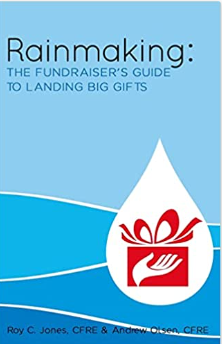Why do regular donors suddenly step up and do something spectacular?
I was reminded of the importance of “Tipping Points” in fundraising this week by World Help’s Director of Sponsorship programs, Noah Barnett. We had a donor who suddenly went from sponsoring a child at just $35 to sending in $15,000 to help build water wells in an African village.
“There must have been a tipping point in the relationship…” explained Barnett. Upon checking the donor’s record it was easy to see just what happened. The donor’s sponsored child had been sick and in the hospital so the World Help team updated the sponsor and promised to keep them informed as the child recovered.
Unrelated to the sponsorship call, the development team sent to the donor the organization’s annual report and outlined, among other things, the number of wells World Help needed to drill this year to provide clean water and prevent children from getting sick. A few weeks later the development department called the donor to make sure they got the annual report and reminded them that 97% of the money raised for projects is used in the field. The donor then sent a check for $15,000 to help with a well.
Tipping points… a call about a sick child, a plan to help others from getting sick, a stewardship call, then a BIG gift. Like dominoes falling, the donor knew this was not some mass marketing campaign. It was truly one-on-one cultivation, truly building a relationship through accountability and stewardship.
Of course, the use of the term “Tipping Points” in fundraising is not new. It dominated the industry nearly 14 years ago when Malcolm Gladwell first published his book, The Tipping Point: How Little Things Can Make a Big Difference (ISBN 0-316-31696-2).
Tipping points in fundraising nearly always focus on stewardship. Donors upgrade their giving when they fully understand that you intend to be accountable for every penny spent. Most importantly, the donor will invest more when they see that you are looking for a business partner, not just somebody to to write a check.
The most exciting thing about Tipping Points is that they rarely happen in a vacuum or by themselves. Most of the time when a donor crosses the threshold moving up to the next level of giving, they are usually taking others along with them. They do not make 5-figure and 6-figure giving decisions without getting the advice of others.
Gladwell defined a tipping point as “the moment of critical mass, the threshold, the boiling point.”[1] The book seeks to explain and describe the “mysterious” sociological changes that mark everyday life. As Gladwell states, “Ideas and products and messages and behaviors spread like viruses do.”
When you have a donor who upgrades their giving, especially those that move dramatically to the 5-figure level, do not  just put them through your normal thank you receipting process. Get out of your office and go see them. Get face to face with that donor and thank them. Ask them to explain the decision making process and who are their trusted advisers that helped them with the decision. Before you know it that single gift will blossom into five or six figure major gifts, but only if you take the time to meet and cultivate real friendships.
just put them through your normal thank you receipting process. Get out of your office and go see them. Get face to face with that donor and thank them. Ask them to explain the decision making process and who are their trusted advisers that helped them with the decision. Before you know it that single gift will blossom into five or six figure major gifts, but only if you take the time to meet and cultivate real friendships.
Tipping points… they happen everyday. The true professional understands their importance and acts immediately!


